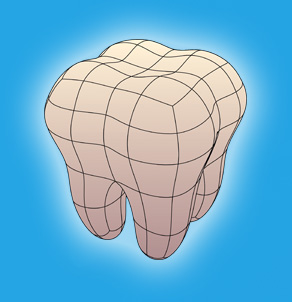Wisdom Tooth (3rd Molar) Surgery: What Are Wisdom Teeth and Why Do They Need to Be Removed?

Third molars are commonly referred to as wisdom teeth.
They are usually the last teeth to develop and are located in the back of your mouth, behind your second molars. Their development is usually completed between the middle teenage years and early twenties, a time traditionally associated with the onset of maturity and the attainment of wisdom.
Watch a Video About Wisdom Teeth Removal
Why Should I Have My Wisdom Teeth Removed?
Although most people develop and grow 32 permanent adult teeth, many times their jaws are too small to accommodate the four wisdom teeth. When inadequate space prevents the teeth from erupting they are called impacted. This indicates their inability to erupt into the proper position for chewing and cleaning.
Types of Impactions
We will need to see you for a consultation to determine if you will benefit from wisdom tooth removal. A special x-ray of your mouth and jaws (panorex) will be taken to determine if your wisdom teeth are impacted, if there is room for them to erupt, and how difficult it will be to have them removed.
What Should I Expect the Day of the Surgery?
Most people prefer to be unaware of the experience when they have their wisdom teeth removed and usually decide to be sedated. You will be provided with appropriate anesthesia options at your consultation. All outpatient surgery is performed under appropriate anesthesia to maximize your comfort. Our office staff has the training, licensing, and experience to provide the various types of anesthesia. These services are provided in an environment of optimum safety, utilizing modern monitoring equipment and a well trained experienced staff. The Surgical Care Team, the office facilities, and the doctors are inspected on behalf of are inspected on behalf of the Michigan Society of Oral and Maxillofacial Surgeons as well as state regulators on a regular basis.
How Do I Know if I Need to Have My Wisdom Teeth Removed?
With an oral examination and x-rays of the mouth, Drs. Topf, Bournias, Murphy or Bolten can evaluate the position of the wisdom teeth and predict if there are present or future potential problems. Studies have shown that early evaluation and treatment result in a superior outcome for the patient. Patients are generally first evaluated in the mid-teenage years by their dentist, orthodontist, or by an oral and maxillofacial surgeon.
All outpatient surgery is performed under appropriate anesthesia to maximize patient comfort. Drs. Topf, Bournias, Murphy or Bolten are trained, licensed, and highly experienced in providing various types of anesthesia for patients.




